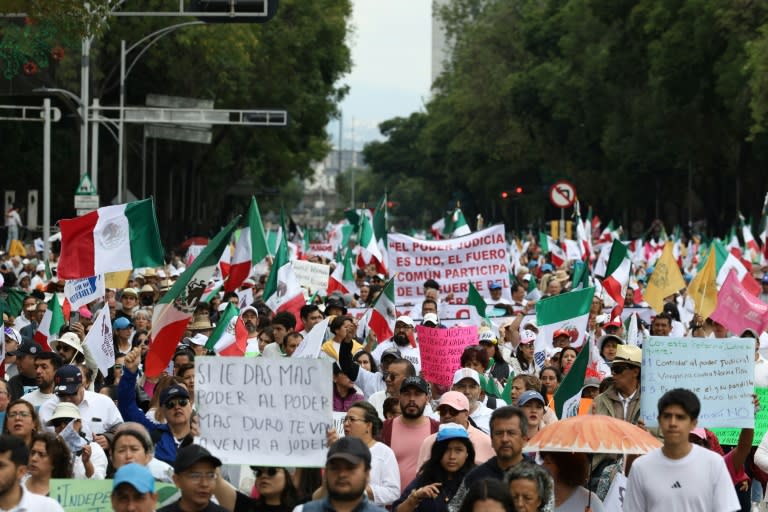Mexico president defends reforms after top judge's warning

Mexico's outgoing President Andres Manuel Lopez Obrador on Monday defended controversial reforms under which voters would elect judges, rejecting an unusual public warning from the Supreme Court chief justice.
The leftist leader's proposals, which his ruling coalition will try to pass in Congress this week, have sparked street protests, diplomatic tensions with the United States and financial market turbulence.
In a video released Sunday, Supreme Court chief justice Norma Pina said that "the demolition of the judiciary is not the way forward," warning that elected judges could be more vulnerable to pressure from criminal groups.
Pina said last week that the top court would discuss whether it has jurisdiction to halt the reforms, which drew thousands of protesters -- mainly court employees and law students -- into the streets of the capital on Sunday.
Lopez Obrador, who has often criticized the Supreme Court, said Monday that Pina was "within her rights" to oppose the reforms.
But it was clear "that corruption prevails in the judiciary and that it is urgent to clean it up for the benefit of everyone, including business people, bankers and foreigners who have investments in Mexico," he said at a news conference.
"Nothing will be destroyed, on the contrary," added Lopez Obrador, who will be replaced by his ally Claudia Sheinbaum on October 1.
The United States, Mexico's main trading partner, has warned that the reforms would threaten a relationship that relies on investor confidence in the Mexican legal framework.
Analysts say investor concerns about the reforms have contributed to a sharp fall in the value of the peso, which last week hit a two-year low against the dollar.
Lopez Obrador, however, said that the currency's drop had nothing to do with the judicial reforms and was due to "external factors."
The bill was passed last week by lower house lawmakers forced to gather in a sports center as protesters blocked access to Congress.
It is expected to be put to a vote this week in the upper house, where the ruling coalition is one seat short of a two-thirds majority, which is needed to amend the constitution.
dr/dw
